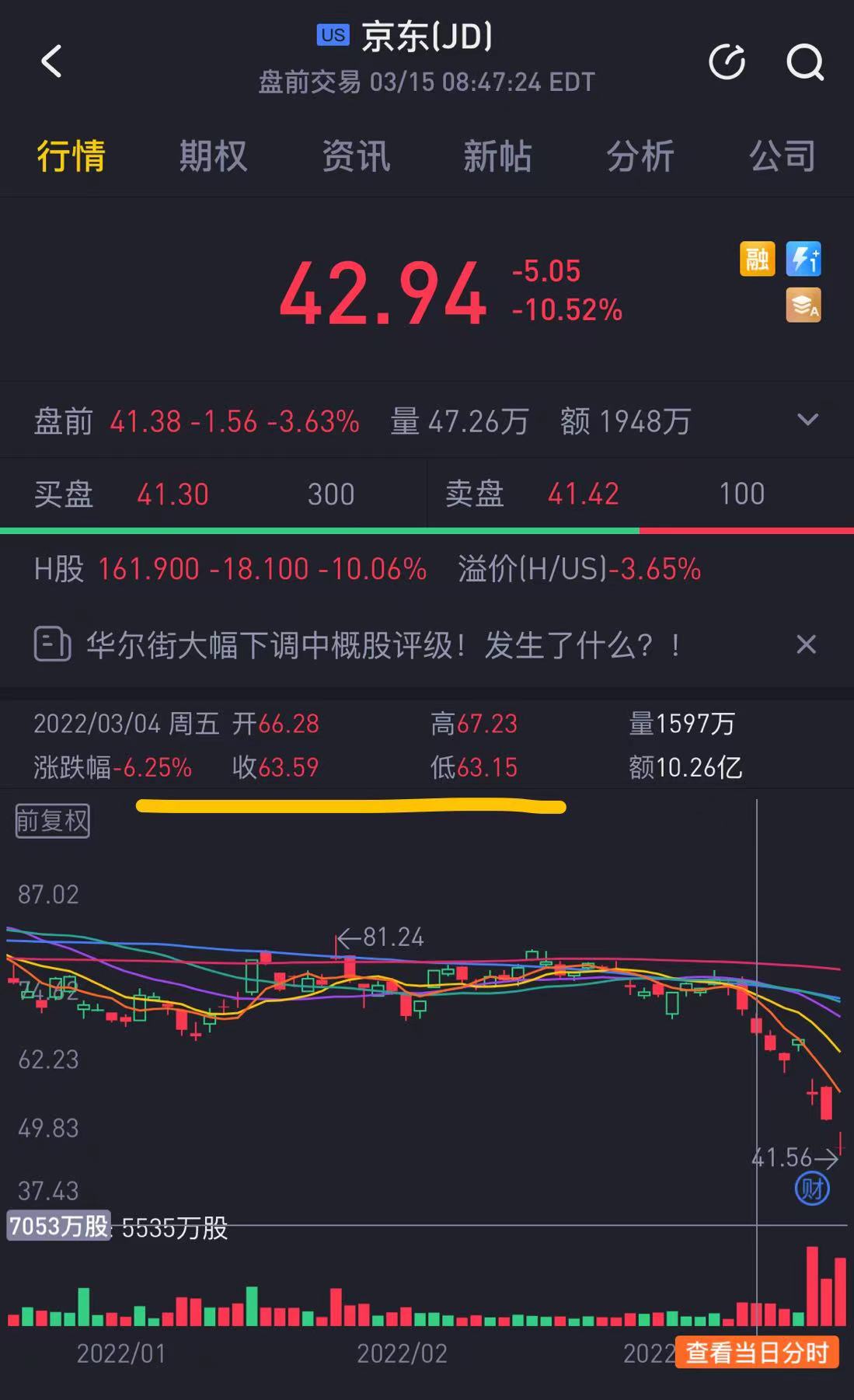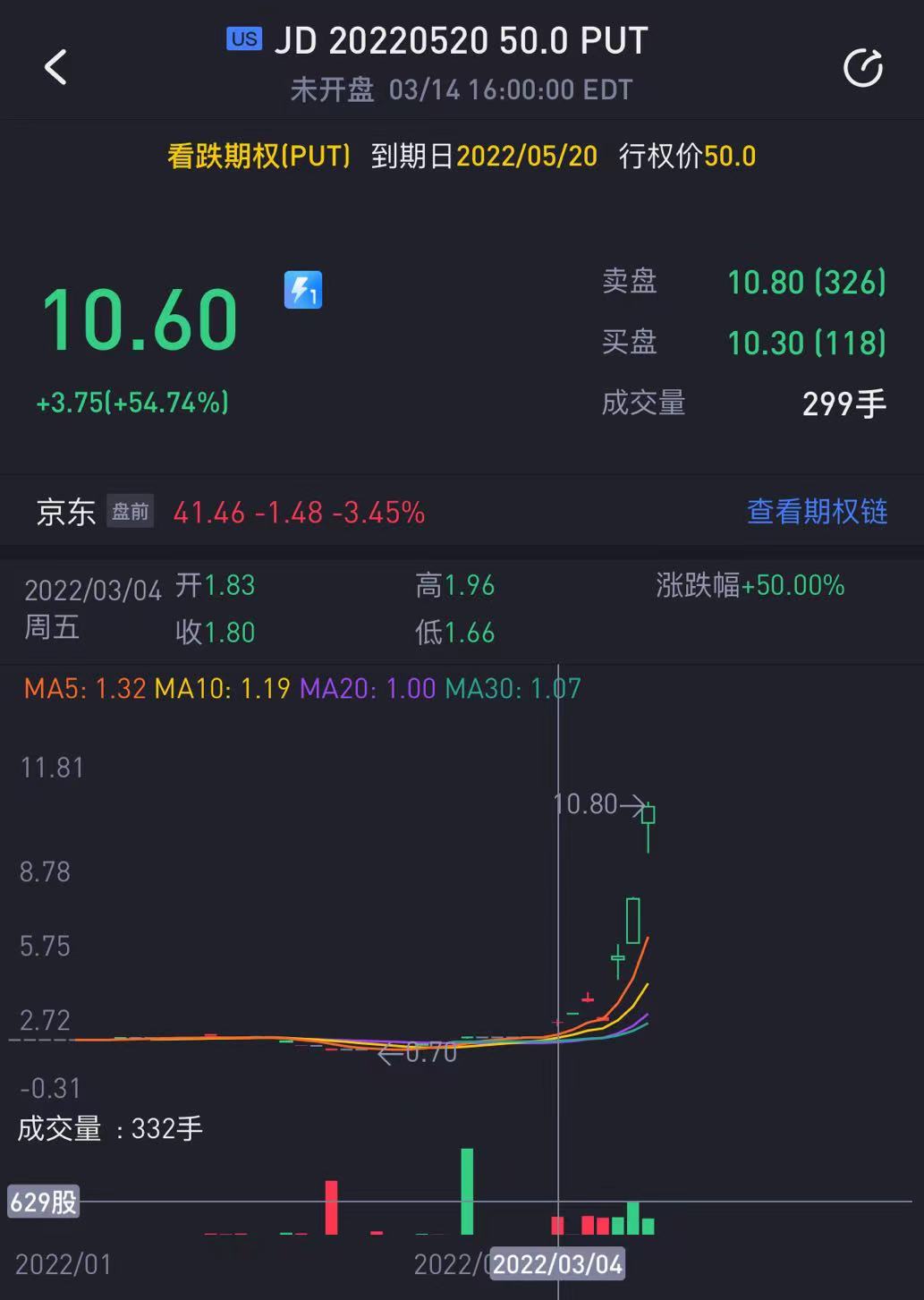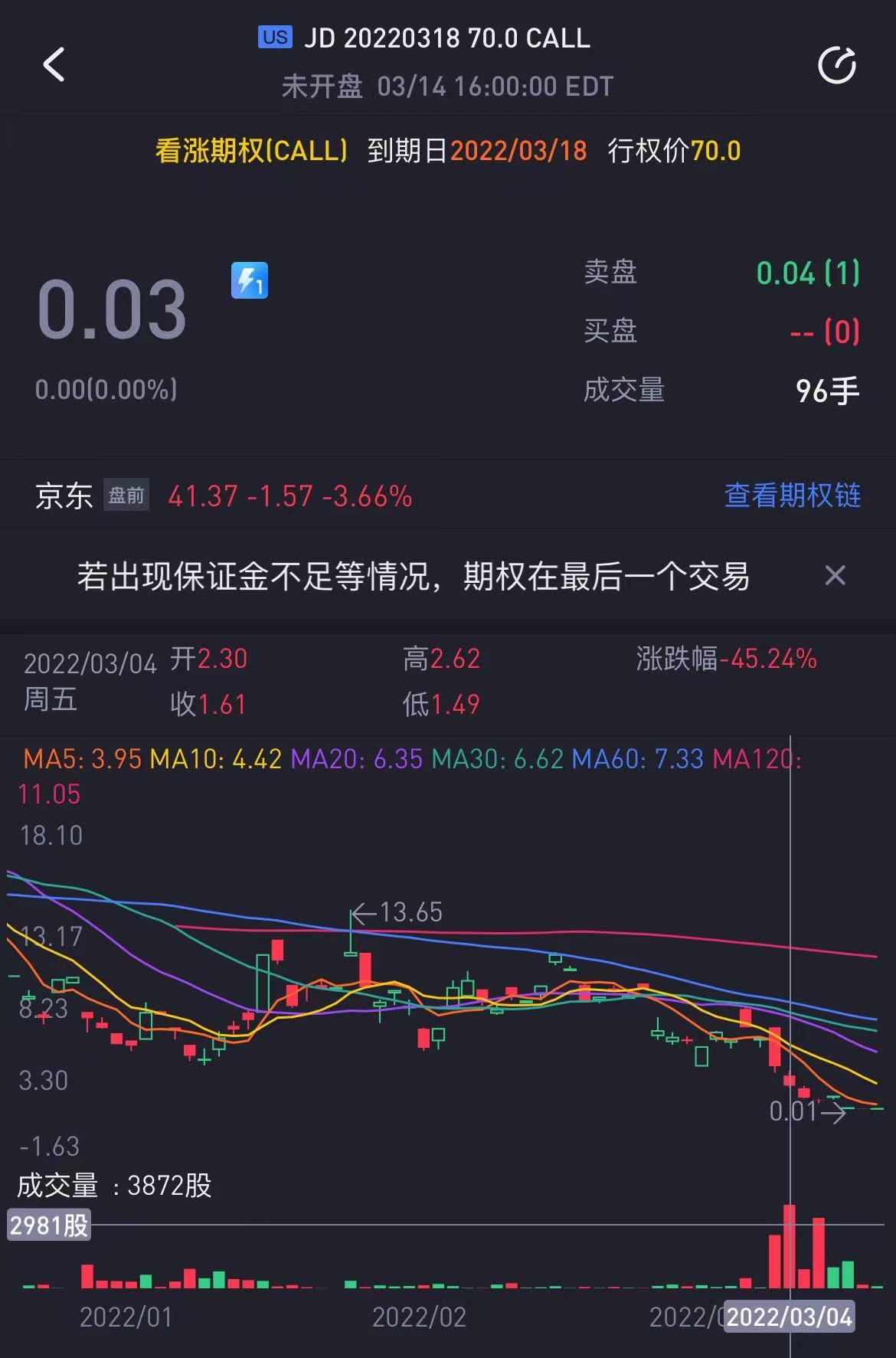Insure your holding shares and cut lose in half
Strategy is simple. The hard part is thinking.
What if the stock rebounds after I buy put?
Today, a friend asked me how to deal with the loss of positions. Is there any way to prevent the next possible drop.
I said yes, at the end of yesterday's article, very simple operation. After reading it, he pondered for a moment and said something that surprised me: 'What if the market rebounds after buying PUT?
There is really no denying that this happens. A bull market is throwing money away by buying put protection. But if the current bear market, as far as the eye can see, rebounds tomorrow, can share prices really go all the way up? Isn't it more likely to rebound and then fall or sideways?
Consider strategy this year first to reverse their bullish thinking, overcome greed, correctly weigh the pros and cons.
Of course, I also understand that a lot of people have lost a lot of shares. Buying a PUT is like buying insurance. It's an extra cost and you don't want to lose more.
So I recommend the Collar Strategy. That is, if you own a stock, you use the proceeds from selling call to cover the cost of buying put.
For example, holding a losing stock is like a dilapidated house, and real insurance companies are not willing to insure you. But the stock market is very generous, not only smooth insurance, but also "rent" the "dilapidated" house. The premium is offset by rental fees, so the Collar Strategy is more cost-effective than simply buying a PUT, but there are a few details to be paid for.
Options Trading
the Collar Strategy mainly consists of three legs. The first leg is the holding stock, the second leg is the out-of-price put to insure the holding down, and the third leg is the out-of-price call to hedge the holding cost of put.
Our main objective is to prevent further declines, not to use this method to make money. So put selects the out-of-the-money option where the absolute value of delta is less than 0.2 and the option expires in 60 days. Call selects the same out-of-the-money option with the same delta value, except that the expiration date is two weeks later.
In order to get a better time value of the call and prevent the stock from being exercised, the call is selected with a closer maturity date than the put. After the call expires, you can choose call to sell again.
For example, back to last week, March 4, $JD.com(JD)$ fell sharply on Friday, opening 66. At this point, our choice to prevent a big drop is:
- buy $JD 20220520 50.0 PUT$,
- sell $JD 20220318 70.0 CALL$。
Look at the k line below. On March 4th, put premium was 1.8 and Call premium was 2.3. "Rent" perfectly offsets "insurance premium".
Since then, JD.com has fallen all the way down to 43 as of today, while put premium has risen to 10.6. In other words, since March 4, our actual loss per 100 shares is (66-43)* 100-1060 =1200.
Without the Collar Strategy protection, we would have lost $1060 more.
Specific to today's stock price of about 43 yuan, if do the Collar Strategy, is:
- sell $JD 20220325 54.0 CALL$
- buy $JD 20220520 30.0 PUT$
For other stocks, keep in mind that the call strike price reserves enough upside.
$Palantir Technologies Inc.(PLTR)$ $Sea Ltd(SE)$ $Grab Holdings(GRAB)$ $SoFi Technologies Inc.(SOFI)$ $PayPal(PYPL)$
Disclaimer: Investing carries risk. This is not financial advice. The above content should not be regarded as an offer, recommendation, or solicitation on acquiring or disposing of any financial products, any associated discussions, comments, or posts by author or other users should not be considered as such either. It is solely for general information purpose only, which does not consider your own investment objectives, financial situations or needs. TTM assumes no responsibility or warranty for the accuracy and completeness of the information, investors should do their own research and may seek professional advice before investing.
- PandoraHaggai·2022-03-16看起来很容易。但到了自己动手的时候,就很难了。8Report
- bwjx·2022-03-16Thanks for sharing. Find it hard to practice on Tiger as it doesn't allow spreads. Probably have to try on TD or some other platforms.6Report
- CoE·2022-03-17not as easy as it seems especially for inexperience/beginner investor. emotion will sink in and panic may run over.2Report
- Jason1616·2022-03-16Showing a video explains much better. such strategy is not meant for newbies. Usually for traders/investors have been in the maRket for 3-5 Years2Report
- ccy1122·2022-03-16[Like] [Like] [Like] [666] [666] [666] [OK] [OK] [OK]2Report
- DonnaMay·2022-03-16Collar Strategy can effectively reduce the risk of traders.1Report
- Olegarki·2022-03-17Like back please…thanks1Report
- Matthew88·2022-03-17Hold long term for good stocks1Report
- Mr Charles·2022-03-17please like2Report
- leilei369·2022-03-16pls like1Report
- RT126·2022-03-16Always likevyour post!1Report
- J0E·2022-03-16Thanks for sharing2Report
- Blake316·2022-03-16Still learning!1Report
- MortimerDodd·2022-03-16You gave a good example with JD.1Report
- Jerrya·2022-03-17Thanks for your kind sharingLikeReport
- DragonTycoon·2022-03-17will consider this strategy. thanks for sharing.1Report
- Yap0606·2022-03-17thanks for sharing😊LikeReport
- asr68·2022-03-17learning is a processLikeReport
- Wei Yang Tay·2022-03-17good thinking good strategy!LikeReport
- Blackrosez·2022-03-17大文章👍LikeReport



